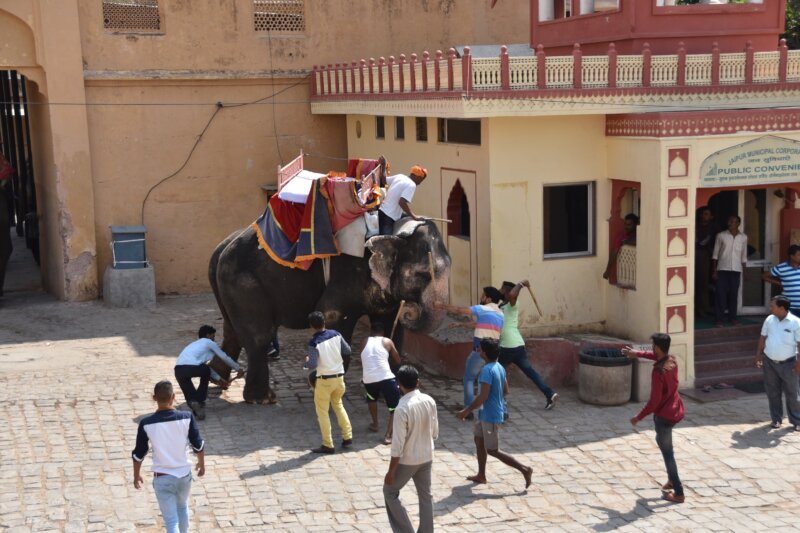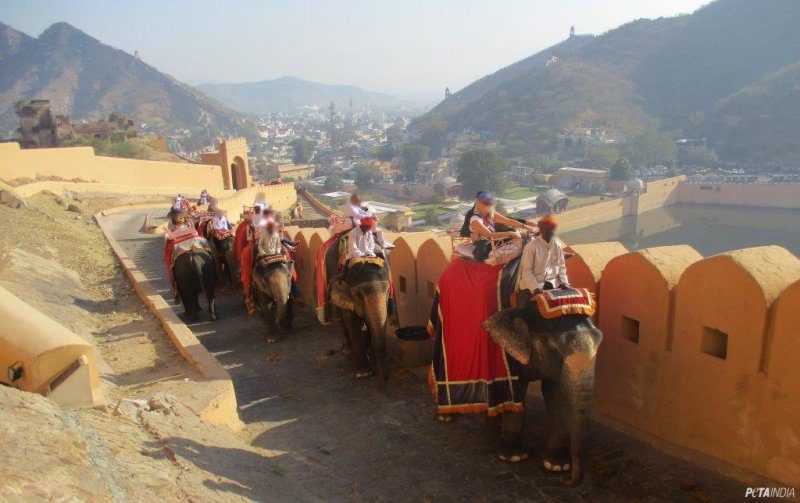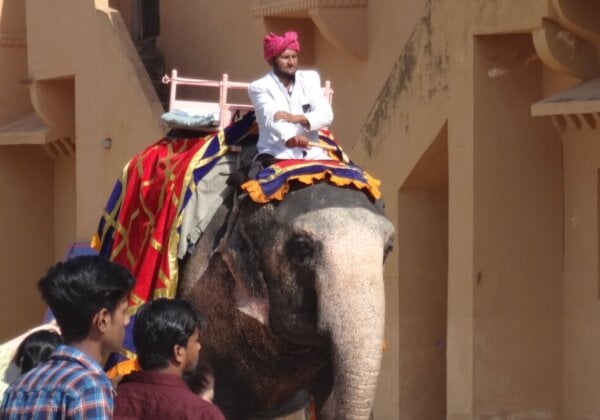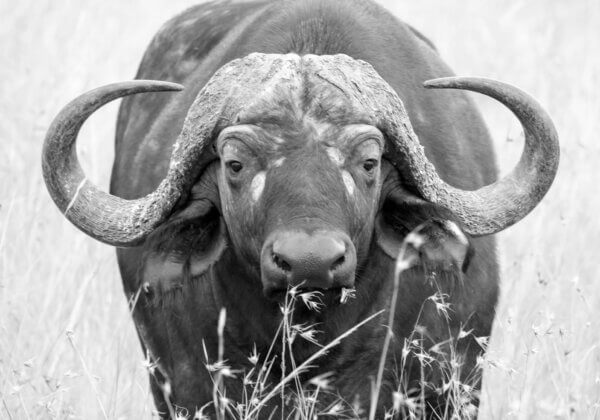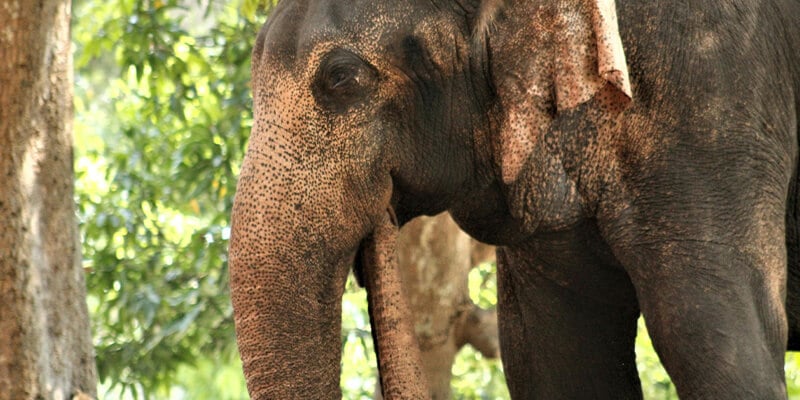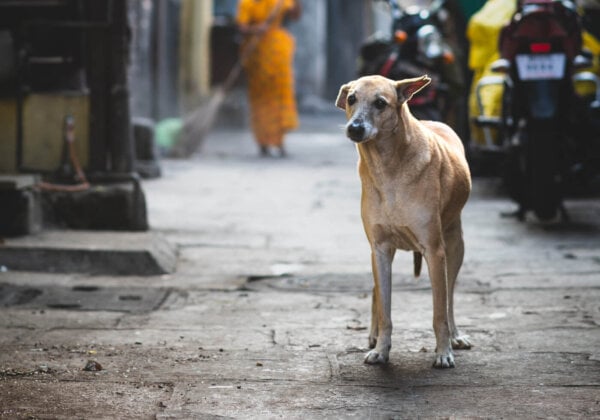PETA India Urges Government to Include Elephants – Who Can Carry Tuberculosis – in Wild-Animal Performance Ban
Under the growing threat of emerging zoonotic diseases such as COVID-19 that spread from other species to humans, PETA India sent a letter urging Union Minister of Fisheries, Animal Husbandry and Dairying Giriraj Singh to issue a central notification that would add elephants to the list of wild animals banned from being exhibited or trained for performances in India. A high prevalence of tuberculosis (TB) – which can be transmitted from elephants to humans – has been detected in elephants in the country. In 1998, the central government banned the use of bears, monkeys, tigers, panthers, and lions as performing animals. However, although elephants are protected under Schedule I of The Wildlife Protection Act, 1972, they’re unjustly excluded from this list.
PETA India notes that captive elephants who have tested reactive for TB have been used for rides at Amer Fort near Jaipur and that the practice of using elephants in circuses, films, TV shows, festivals, parades, and other spectacles could also be putting the public at risk. The continued exploitation of elephants could have severe consequences for public health, tourism, and the overall economy, as the nation has learned from the current pandemic.
An April 2018 evaluation report of captive elephants in Jaipur by the Animal Welfare Board of India (AWBI) – a central government statutory body – revealed that 10% of the tested elephants, who are used for rides and other tourist interactions near Jaipur, were found to be reactive in a rapid serological test for TB.
One scientific study conducted on 600 elephants in Karnataka, Kerala, and Tamil Nadu published in 2012 found “evidence for high prevalence of asymptomatic M. tuberculosis infection in Asian elephants in a captive Indian setting”. An Indian study published in 2013 discovered “two probable cases of cross-species transmission of M. tuberculosis between mahouts and captive elephants. First is [a] case of human-to-elephant [transmission] and second is a case of elephant-to-human transmission of M. tuberculosis”. Another Indian paper published in 2016 stated, “There is evidence to suggest cross-species tuberculosis transmission,” based on one-time screenings of nearly 800 elephants and their mahouts over a period of three years.
In 2008, the Ministry of Defence decided to prohibit the use of elephants during Republic Day parades, concluding that there are serious safety concerns associated with the risk that frustrated elephants could become violent – and that uncertainties exist regarding the legality of their ownership. In 2010, the government declared elephants a National Heritage Animal in order to strengthen measures to protect them. And based on a detailed study that highlighted the suffering endured by captive elephants in India in 2016, the AWBI recommended that the central government ban the exhibition and training of elephants for performances.
According to Section 22(ii) of The Prevention of Cruelty to Animals Act, 1960, the Ministry of Fisheries, Animal Husbandry and Dairying can issue a central notification in the official Gazette of India banning the exhibition and training of elephants as performing animals.


